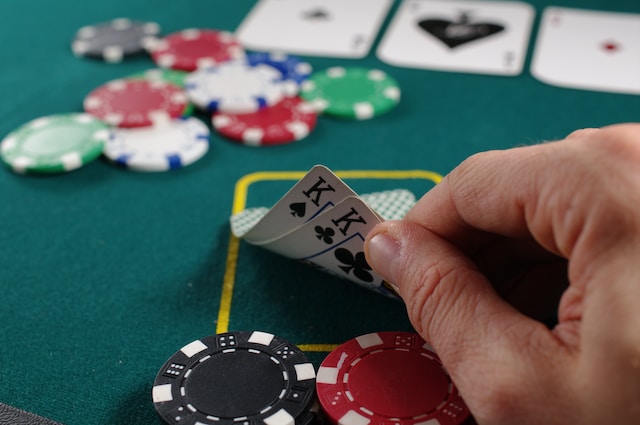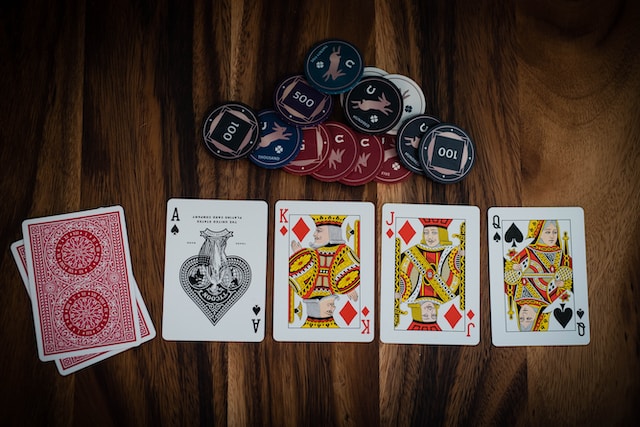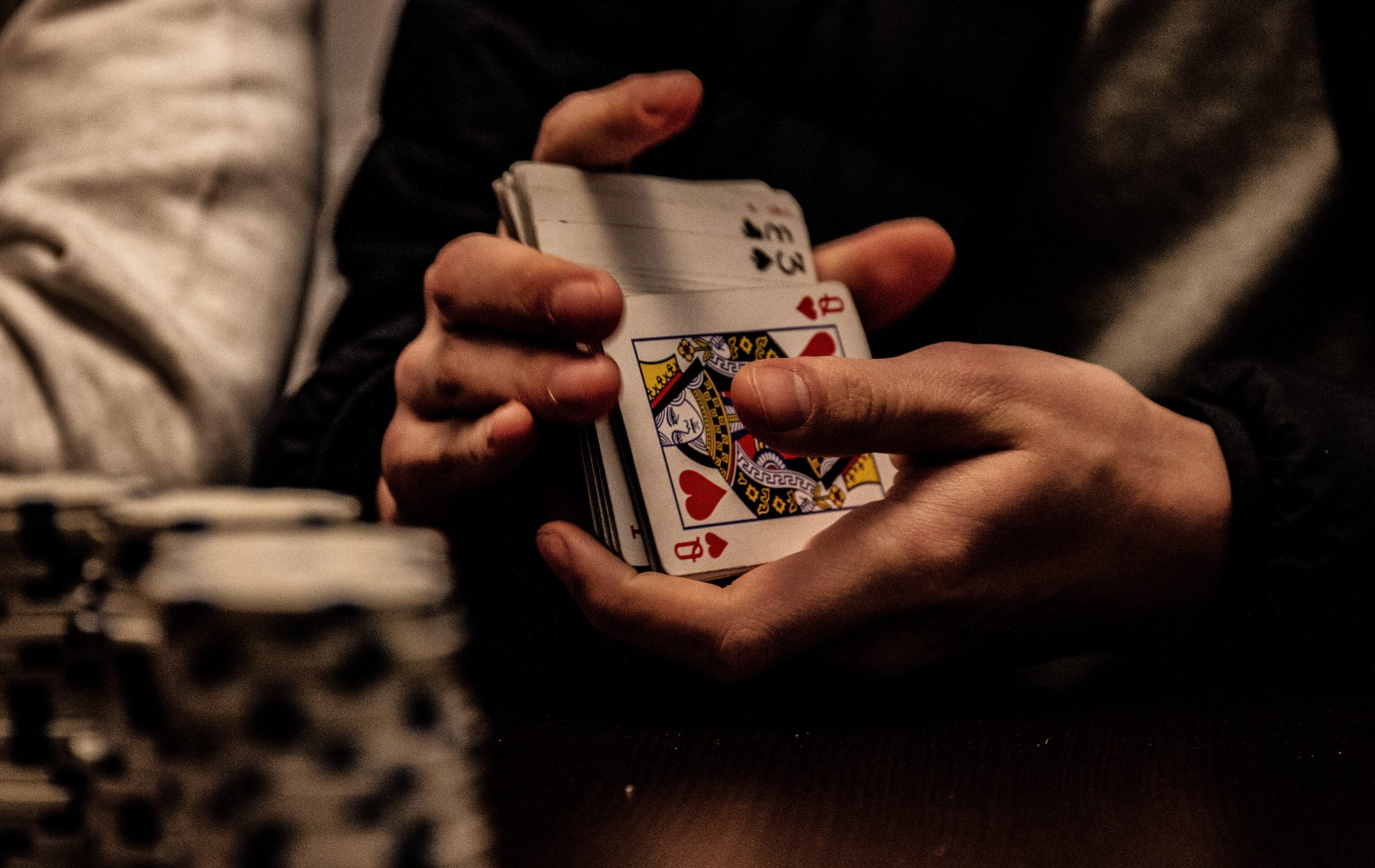Setting the Scene: the Inception of Gambling Regulations
Gambling regulations in Washington have an impressive and varied history that illustrates their intricate relationship to law, commercial interests, and public expectations. The Washington Gambling Act established its current regulatory system back in 1973 when residents enthusiastically welcomed it – leading to the formation of the Washington State Gambling Commission that now regulates numerous forms of gambling activities across Washington state.
Regulations for Poker Play in Washington
Poker has a rich heritage ingrained into customs and the gaming scene in Washington State; thanks to an enthusiastic community that enjoys it. As such, poker enjoys an important place in this state’s gaming landscape; regulations for poker in Washington have been implemented by the Washington State Gambling Commission to ensure fair play, encourage responsible gambling practices, and minimize illicit actions as stated by a representative for this entity.
Looking deeper at the rules, home-based social poker games are legal as long as their host does not profit from them. On the other hand, when hosted by licensed businesses and large poker games hosted therein become more complicated as licensed operators must meet stringent regulatory criteria regarding game integrity, player safety and operational transparency.
Exploring Recent Regulatory Developments
Washington has not been immune to the global wave of digital innovation that sweeps across every nation, as digital innovation gains ground across borders. Due to this phenomenon, there was an important shift made in Washington state regulations when tribal casinos in 2020 became authorized for sports betting at tribal casinos; although this has yet to include poker rules many experts see this move as potentially inclusive gambling laws coming soon.
Jonathan Silver, an expert gambling analyst noted: “State lawmakers appear more open to modernizing gambling laws due to potential economic advantages.” This development should be taken into consideration by the poker community as it might indicate changes coming soon.
Online Poker: An Ever Increasing Challenge
Washington state is currently grappling with an explosive controversy surrounding online poker. Following passage of the Unlawful Internet Gambling Enforcement Act (UIGEA) at a federal level in 2006, Washington took it one step further by designating online poker as a Class C Felony in response. Despite several attempts at overthrowing this law, however, its presence remains in effect and remains valid despite attempts at repeal.
Noteworthy is the fact that while this law exists on paper, it has never been utilized against an online poker player in Washington state. Even so, online poker sites remain reluctant to sell their services there due to legal impediments.
Impact on Poker Players and Operators
Realistically, Washington laws could appear restrictive; however, over one hundred card rooms exist throughout the state and serve a thriving poker community. According to one representative from Muckleshoot Casino in Auburn: “Our commitment is creating an atmosphere in which enthusiasts of this great game can enjoy it within state regulations.”
Operators are working tirelessly to navigate around these restrictions so as to continue providing valued services to the poker community, with the fundamental aspects of poker (being strategic, pleasurable and social) remaining intact as a result of their work.
Washington: Examining Future Poker Regulations
At first glance, Washington poker rules seem both intriguing and surprising. Experts predict that in the near future regulation will take on a more modern tone due to technological progress and cultural attitudes regarding gambling.
They referenced an ongoing shift in perspective with regard to online gambling during an interview with a state lawmaker who requested anonymity and then stated, “Conversation is shifting; not whether more stringent regulations will be put in place but when and how.”
Licensing for Card Rooms: an Essential Component
Licensing remains a pressing concern in Washington state for both players and operators in the industry, with license acquisition seen by the Washington Gambling Commission as an integral tool in protecting the honor of poker games played within its borders. According to this information provided by the Commission, in order to obtain one, operators must pass stringent checks regarding ownership, finances and security before being granted their license – this has resulted in an industry with robust and responsible operations where gamers can enjoy playing without worry thanks to positive results of licensing regulations.
Striking a Balance Between Player Protection and Freedom
Regulators in Washington seek to strike a delicate balance between providing players with freedom of play and safeguards to combat compulsive gambling. A spokesperson from the Problem Gambling Program of the Washington State Department of Health noted: “Our aim is to foster an enjoyable atmosphere where resources and support can readily be made available when needed; Washington remains dedicated to striking this equilibrium.”

Federal Influence and Interplay with State Laws
Although each state in the US has the authority to determine how gambling is regulated within their borders, federal policies often have an influence. One prime example was when Washington implemented the Unlawful Internet Gambling Enforcement Act (UIGEA). Future changes at the federal level may cause additional changes within state gambling rules which further emphasize its delicate dynamics.
Response of the Poker Community to Regulatory Changes
Washington poker players possess an admirable sense of resilience and passion for the game that contributes to community cohesion. How they react to an ever-shifting regulatory landscape also plays a large part.
According to the President of the Washington State Poker Players Alliance, his organization recognizes the need for regulations in order to create an equitable and safe environment. They also advocate for greater recognition of poker as a game of skill which may lead to more progressive laws regarding internet gambling.
Tribal Casinos Have Significant Regulatory Consequences
This complicated tale is further complicated by the intricate relationship between tribal casinos and Washington state regulations that regulate poker. With sports betting legalized at tribal casinos, an important shift has taken place in Washington’s gambling landscape and tribal casinos are an integral component of its gaming scene.
Poker stands in its own unique niche; some tribes may operate poker rooms in accordance with Class III gambling regulations, while other tribes opt out altogether as part of compacts with their respective states. The variety of approaches taken towards poker in tribal casinos across a state reveals intricate aspects of state regulations governing gambling.
Economic Implications of Poker Regulations
Washington’s new poker restrictions will have serious repercussions for its economy. A study conducted by the University of Washington discovered that poker makes a substantial contribution to Washington State’s economy through job creation, tax revenue generation and tourist attraction.
At the same time, taking an anti-online poker stance may make it more challenging to generate profitable income. Dr. Lucy Reardon, an expert on gaming economics, stated that “online poker has shown significant revenue potential in other jurisdictions,” suggesting it could bring significant economic advantages to Washington state if implemented effectively.
Player Safety Regulations and Their Implications
Regulation is of paramount importance in protecting player safety, and Washington’s State Gambling Commission makes every effort to ensure all of the players gambling are in an environment free from risk.
One of the more noteworthy regulations involves an exclusion program. Individuals whose gambling habits become problematic have the opportunity to voluntarily limit access to gambling venues through this provision, taking a proactive step toward encouraging responsible gambling behavior, which is ultimately the goal. A representative from the Commission was quoted as stating “Player safety and well-being are of utmost importance, so these regulations ensure we’re doing our part in encouraging responsible gambling”.
Regulation Impact on Poker Reputation
Regulations that govern the poker industry also have a profound effect on its reputation. Gaming has historically been seen with suspicion, sometimes carrying stigma. By creating an environment of trust and dependability by ensuring honesty and validity of games offered at gaming establishments as well as mandating stringent requirements for businesses operating gambling establishments, regulations have helped legitimize gambling as an activity and contribute towards creating positive associations for poker as a leisure activity. As a direct result of these measures, poker has unquestionably become a more respectable and popular leisure activity, furthering its overall positive image.

An Introduction to Neighboring States
Compare Washington state poker regulations with those of nearby states such as Oregon and Idaho for some fresh insights. Idaho stands out as being significantly more conservative; no legal poker rooms exist there compared to Oregon which offers more permissive attitudes toward online gaming and has legal rooms open all hours of operation.
These differences demonstrate the inherent complexity and diversity of gambling rules across the United States, with each state creating its own set of gambling regulations. Although Washington appears to be taking an intermediate stance when it comes to player freedom vs regulatory oversight.
At its Core: An Intrinsic Game
Navigating Washington poker regulations is much like playing the game itself: There are numerous regulations to keep up with and keeping track of them can be a challenging and multifaceted journey. Each side plays an integral part in shaping its trajectory forward within Washington state.
Over time, poker will evolve as new technologies arise, public attitudes change and gambling laws alter globally. One thing can be guaranteed with absolute certainty though: Washingtonians love of poker is here to stay ensuring it continues no matter who deals the cards.

